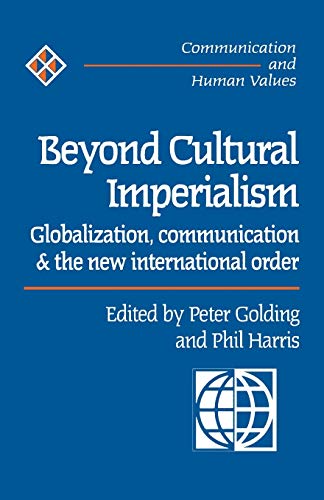Beyond Cultural Imperialism
Peter Golding was Professor of Sociology at Loughborough University from 1990 until coming to Northumbria in August 2010. He was Head of Social Sciences at Loughborough from 1991-2006, and Pro Vice-Chancellor (Research) 2006-2009. He was a member of the national Research Assessment Exercise panel for communications, media and cultural studies in 1996 and 2001, and its Chair in 2008, Vice-Chair of the ESRC postgraduate Recognition Panel for sociology and media and cultural studies, and chair of the HEFCE Media Studies Advisory Committee. He is an editor of the European Journal of Communication, Hon. Chair of the European Sociological Association Media Research Network, and was Co-Chair of the European Science Foundation Programme 'Changing Media, Changing Europe'. He was founder Chair of the subject association for his field, from 1993-1999, since when he has been Hon. Sec. of its successor body, the Media, Communication and Cultural Studies Association, and is a member of the UK UNESCO Commission Communications and Information Committee. Professor Golding has been a Visiting Professor at universities in Switzerland, New Zealand, Japan, Estonia and Brazil and has lectured and taught in over 20 countries. ... Read more Read less
The massive international flows of films, television programs, and other media around the world have long posed vital questions of culture and power. But how can we best understand this central feature of the modern world? Is a model of "cultural imperialism" a valid way of understanding global communications as we approach the end of the century? In this broad-ranging analysis of the new international context of world communication, an international group of leading scholars review and take forward these debates. They discuss different perspectives of the role of the state, the range of cultural impact and influence beyond the media, the roles of international organizations and business interests in world communication, and the potential for resistance and alternatives. They reflect on the "New World International Communications Order" as delineated since the 1970s, and examine its changing nature. Throughout the book they connect analysis of the flows and forces that form the world of media and communication with the fundamental themes of social science, and illuminate the ways in which underlying questions of inequality, power, and control reappear within new media environments. ... Read more Read less











